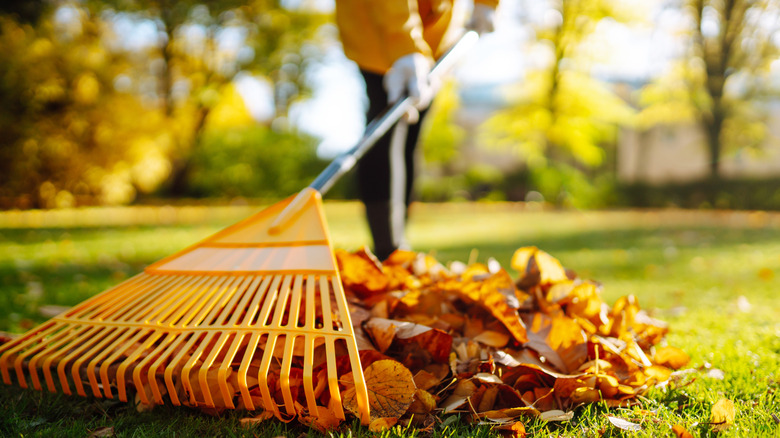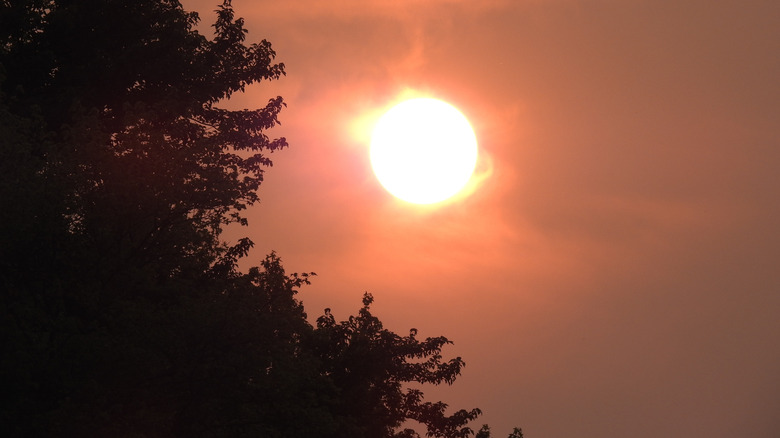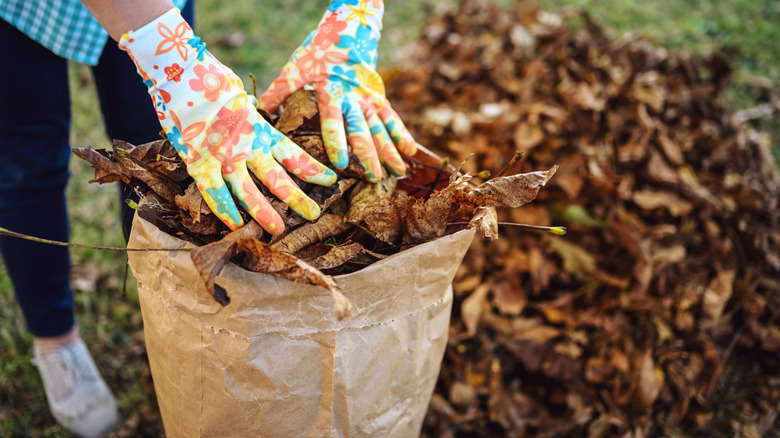Can You Burn Leaves In Your Delaware Yard? Here's What To Know
Having trees around your Delaware home can offer a lot of benefits, but you'll inevitably have to clean up leaves from time to time. The question then becomes what to do with all the yard waste you've accumulated. Some people want to burn yard waste like leaves, as this might be a quick and economical way to dispose of them. However, burning leaves is not recommended from the standpoint of health, safety, and the environment. The legality of the practice also varies based on your location. If you live in Delaware, you should know that burning leaves is always illegal in the state, and there are other rules to adhere to if you're interested in any other types of residential open burning activities.
Delaware's Department of Natural Resources and Environmental Control (DNREC) has pretty clear laws regarding residential open burning. While the state does allow the burning of small branches or shrubs on private property, these can only be in piles of 27 cubic feet per burn. Open burns of this nature are only permitted during the hours of 8:00 am to 4:00 pm, and between the months of October through April. You must also notify the state fire marshal before burning legal yard waste items if you're planning to get rid of fallen tree branches in your yard in this way.
Even when Delawareans are allowed to burn certain yard wastes on their properties though, leaves are never allowed. This is regardless of the size of the pile, where you plan on burning it, and the time of day or year. Aside from leaves, the state of Delaware also prohibits burning grass clippings as well as garbage.
What makes burning leaves so dangerous
It's not just Delaware that outlaws open burning of leaves. Many other residential areas in the country have also banned the practice because of the adverse effects on human health and the environment. The smoke associated with leaf pile burns emits toxins that can cause both short-term and long-term health effects, and they may exacerbate preexisting respiratory conditions. Among the toxins are hydrocarbons as well as carbon monoxide. Wet leaves emit more carcinogenic hydrocarbons than dry ones when burned. If you do burn any leaves or other prohibited items set forth by the DNREC, you may be subject to a fine and/or criminal conviction. These are just some of the reasons why you shouldn't burn raked leaves in your yard.
Burning leaves in Delaware can also contribute to the state's air pollution levels, which goes against state environmental laws to safeguard air quality. In fact, Delaware enacts its own burn ban every year between May 1 and September 30. Also called the Ozone Season, these are the months when ozone levels are higher, and subsequent air quality is poorer. Also, if air quality is exceptionally poor in parts of Delaware, the state might declare Air Quality Action Days in which all open burning activities are prohibited. The law applies to any open burning activities, although residential leaf burning is always illegal in Delaware.
The only exceptions during Ozone Season's burn ban are campfires and backyard fire pits, as well as small ceremonial fires and cooking with grills. But even these activities are dependent on red flag warnings, which may be issued by the National Weather Service or the state.
Alternatives to burning leaves in Delaware yards
Instead of burning leaves in your Delaware yard, consider alternatives to hep remove the yard waste without causing any potential harm. If you have a small number of leaves, you could possibly use these as a type of organic mulch to place around your plants. A lot of leftover leaves may be shredded and stored in bins for future use. Just be sure to keep each leaf mulch pile under 2 to 3 inches thick, or else you might adversely affect plant growing conditions. Some experts also recommend using shredded leaves as part of compost for home gardens. Overall, these creative ways to dispose of dead leaves in the fall can be viable alternatives to burning them while actually helping your garden, rather than just discarding them as part of yard waste.
If you have a large number of leaves, or simply do not have any of the above uses for them, contact your local waste management company for proper disposal. This may involve raking up the leaves for placement in yard waste bags ahead of time.


